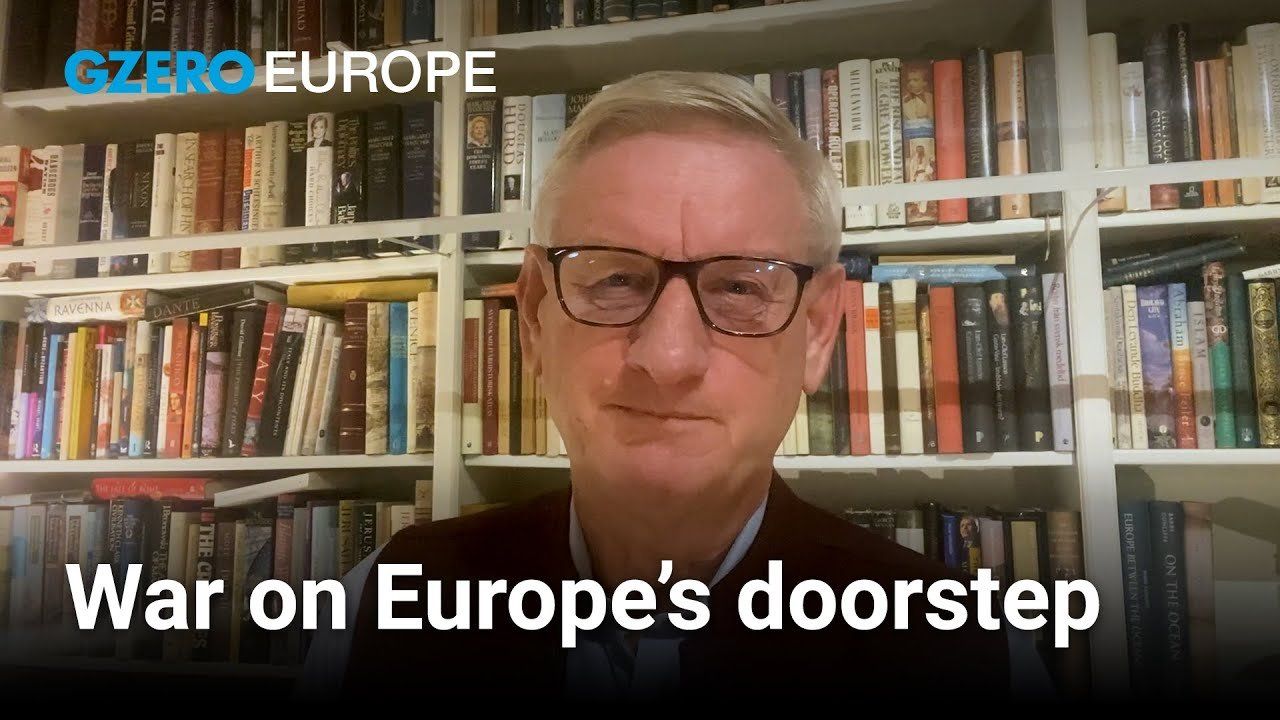GZERO Europe
Israel-Hamas war: How is Europe responding?

Israel-Hamas war: How is Europe responding? | Europe In :60 | GZERO Media

Carl Bildt, former prime minister of Sweden, shares his perspective on European politics from Stockholm.
What’s the European reaction to the Hamas terror attack against Israel?
Well, the first reaction is obviously, the European foreign ministers were gathering, they had an extraordinary meeting by Zoom, as well, to express support for Israel, solidarity, understanding that Israel does have, no question about that, the right to defend itself. But also saying that there is also international humanitarian law and international law otherwise, and concern that the fighting that we will see, that it's going to have immense humanitarian and human consequences, and the fears that this, in its turn, will have different political consequences in the region and perhaps wider. This is on the doorsteps of Europe - that might be difficult to handle. Then, another bit of questioning, was it right to have the Israel-Palestine issue on the back burner both in the US and Europe during the last few years? Probably not. Could this have been prevented? We'll never know if that could have been the case. But clearly, this is an issue that has to be on the agenda one way or the other after the more acute face of the rather horrible war that we now see after the terror attack.
What was the outcome of President Zelensky's visit to NATO?
Well, he went there, of course, because of the fact that there is a fair degree of worry, has to be said, in Europe of what is happening or not happening in the US House of Representatives and what that will mean for US ability to sustain the necessary support for Ukraine. So President Zelensky wanted to say to the Europeans and say to the Americans, "We really need artillery, ammunition, we really need anti-aircraft systems of different sorts. We really need long range weapons in order to be able to sustain our offensive and take care of the Russian offensives that are likely to come." There were some substantial support packages announced, one by the Americans, but one even more important, I think, and more substantial, by the Germans and others, but more will clearly have to come. We are now dealing with, we Europeans, one big war in Europe and one potentially big war right on our doorsteps. So it is, needless to say, difficult times.
People in support of former South Korean President Yoon Suk Yeol rally near Seoul Central District Court in Seoul on Feb. 19, 2026. The court sentenced him to life imprisonment the same day for leading an insurrection with his short-lived declaration of martial law in December 2024.
65: The age of former South Korean President Yoon Suk Yeol, who was sentenced to life in prison on Thursday after being found guilty of plotting an insurrection when he declared martial law in 2024.
In an era when geopolitics can feel overwhelming and remote, sometimes the best messengers are made of felt and foam.
The Hungarian election is off to the races, and nationalist Prime Minister Viktor Orbán is facing his most serious challenger in 16 years.
Does skepticism rule the day in politics? Public opinion data collected as part of the Munich Security Conference’s annual report found that large shares of respondents in G7 and several BRICS countries believed their governments’ policies would leave future generations worse off.